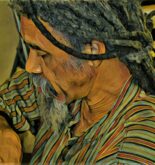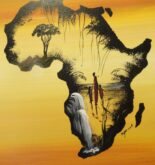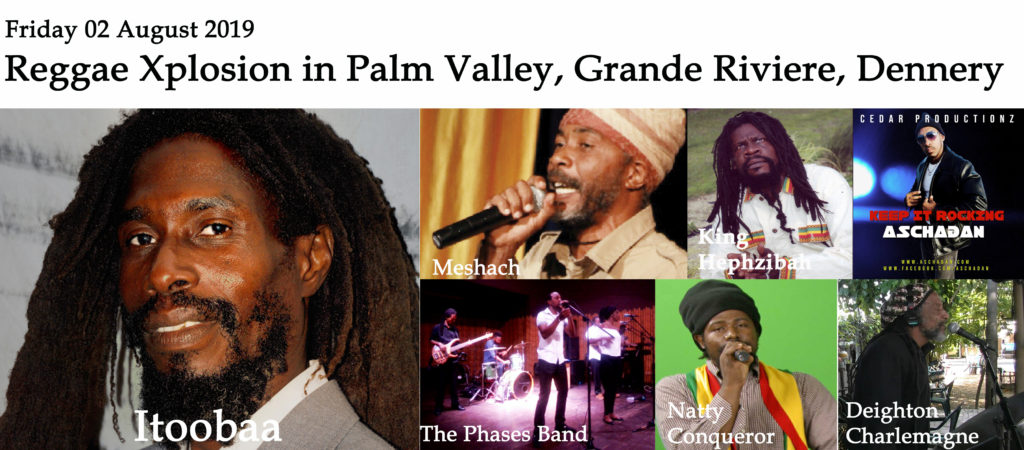
Born and raised in Vieux Fort, St.Lucia, Itoobaa has been composing songs since the late seventies. However, in1982, in his quest for truth, he joined the Niyabingi, a Rastafaridenomination. The Niyabingi condemns popular music and all modern musical instruments as Tubalcain, devil worship. So, after joining the Niyabingi, Itoobaa’smusic was reduced to African chants and the playing of African drums.
Yet, before Itoobaa’s conversion toNiyabingi, he was something of a musical guru in Vieux Fort. He was bandleader, arranger, chief songwriter and a founding member of Nature. Still, Itoobaa found time to teach many aspiring musicians to play bass and guitar, and he arranged and put music to the lyrics of as many an artiste.
By the mid-nineties, Itoobaa realized that despite his religious beliefs much good could come out of his music. Not only could he provide guidance to a new generation of musicians, but his music could be a source of upliftment and inspiration to others in the same way that Bob Marley’s music had been to him. And why had God given him this talent, if he had no intention for him to use it? With this realization, Itoobaa reentered the music scene and dedicated his life to continuing the musical legacy of Bob Marley.
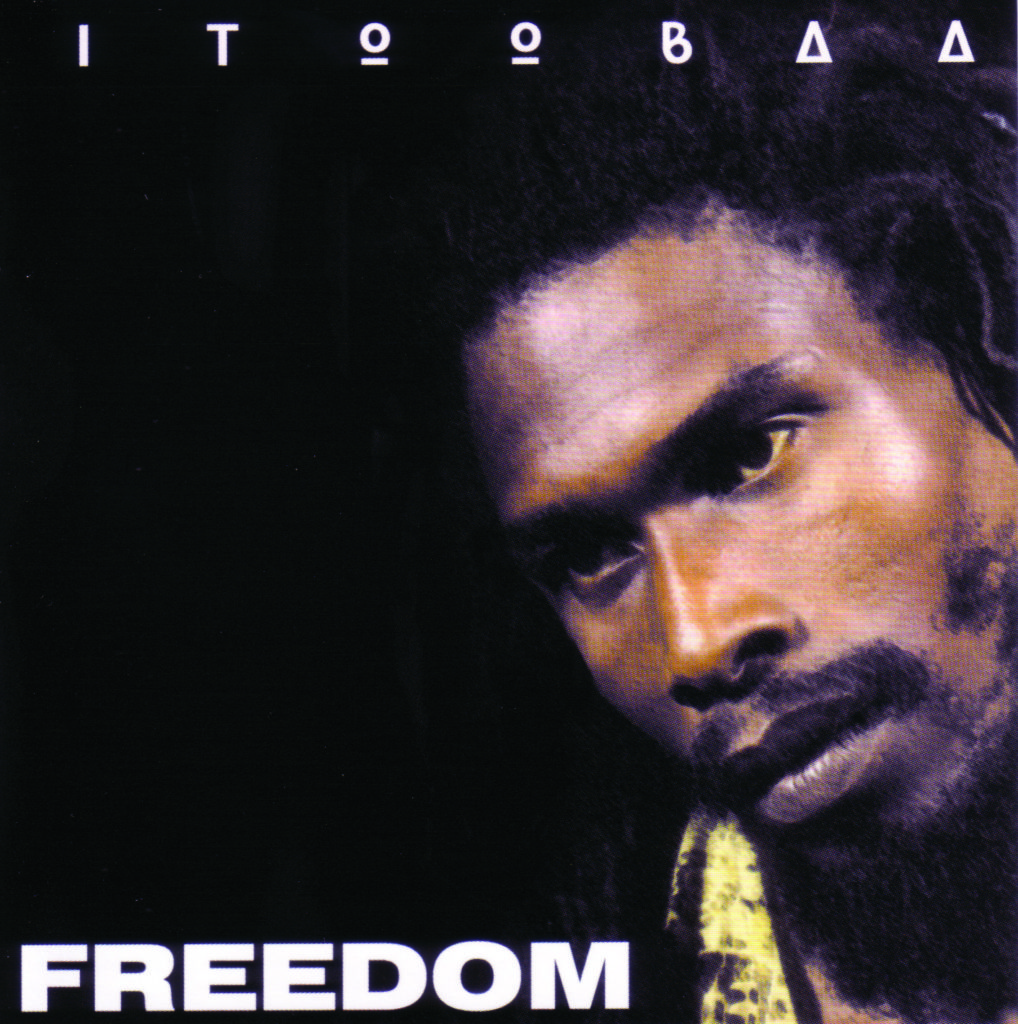
Then in 1999, Itoobaa caught the attention of Dr. Anderson Reynolds who had recently resettled in St. Lucia after a twenty-year sojourn in the US, and who was soon to established Jako Productions, the vehicle by which he sought to encourage the artistic expression of St. Lucian culture and to promote that culture worldwide. After a private audition at which Itoobaasang some of his songs accompanied with an acoustic guitar, Dr. Reynolds was so impressed that he quickly offered Itoobaaa recording contract.
The result was the history-making 2001 reggae album, Freedom, that won a national prize for album of the year, and that remains arguably the greatest reggae album to come out of St. Lucia.
In Freedom, Itoobaabrings us an uncompromising brand of roots reggae that echos the profoundness of Bob Marley, the mellowness of Gregory Isaac and the edginess of Steel Pulse. Hinting sometimes at blues, sometimes at jazz, sometimes at funk, and other times at some combination of these, the music stands alone in its uniqueness and appeals to both reggae and non-reggae lovers. To hear music like this one may have to go to no other place than Jamaica and to no other time than the era Bob Marley and Peter Tosh reigned supreme. The album spans the full range of reggae. There is ska, there is roots reggae Bob Marley’s style, roots reggaeSteel Pulse style, lovers rock Sanchez style, funky reggae Third World style, classical British reggae Aswad style. There is even an acoustic composition as in Bob Marley’s Redemption Song. As if all this wasn’t enough, Itoobaa teamed up first with hip-hop artiste, Gladstone Joseph, and then with dub artiste, Allen Augustin, to bring us two compositions of great power, urgency and contemporary feel.
The gospel that Itoobaa shares with us is no less encompassing. There are meditations on love and happiness; prophetic admonitions of living right, living in harmony with man and nature, and the punishment that awaits the wicked; there are songs of celebration and rejoicing; songs of love, thanks and praise; songs of freedom, emancipation, and redemption. No matter the message or musical arrangement, Itoobaa’s deep, untamed, uncompromised, throaty voice comes out as clear as a prophet’s and his message is no less infectious. Like any good art, the more one listens to the music, the better it sounds, the deeper it gets. No two songs on the album are alike. Each song is a world within a world, and once you enter one world you have no desire to leave. Freedom features Monty Maxwell at his best. His jazz, blues, and rock guitaring on six of the tracks takes the music to another level and produces an unparallel brand of reggae, showing why he is one of the best guitarists on the island and why he is a regular feature of the St. Lucia Jazz Festival.
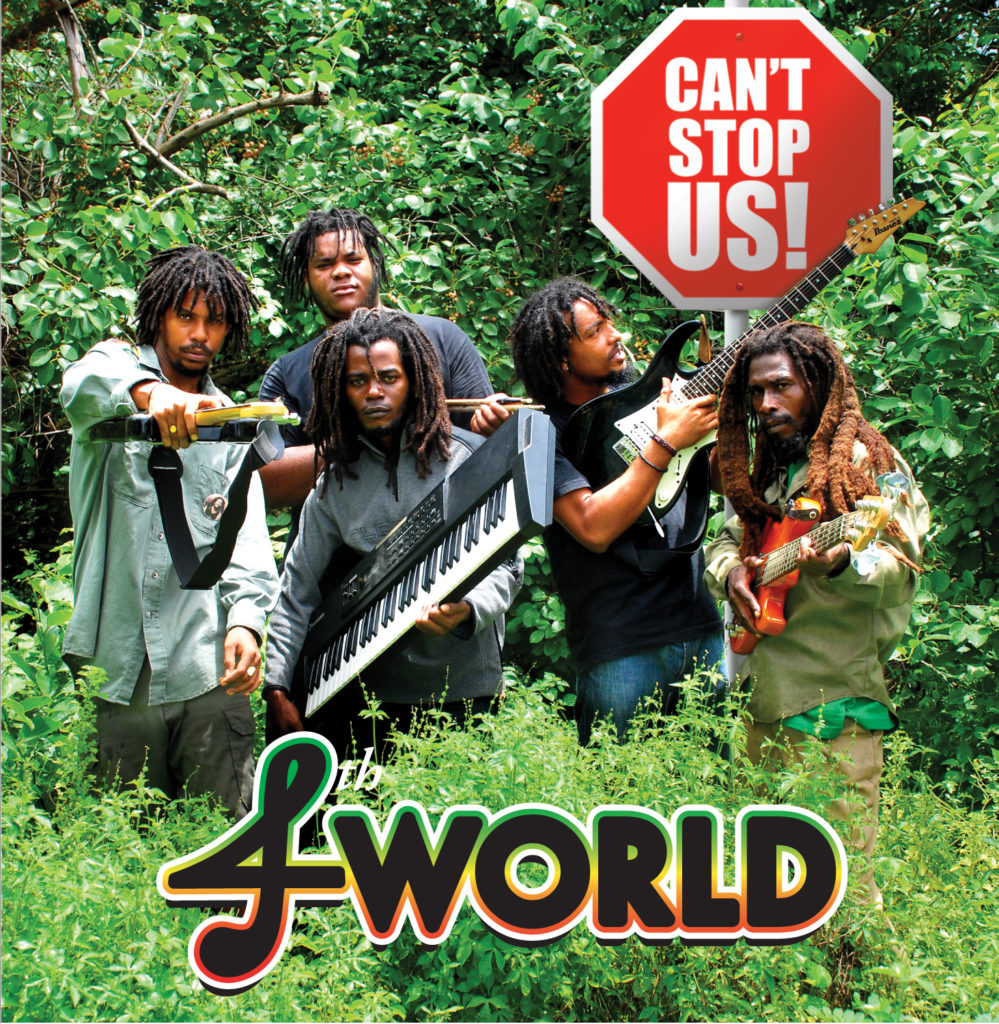
The backup vocals (done mostly by Itoobaa andNijah St. Catherine), which sometimes coos, sometimes wails, could stand on its own merit. Such that even without the lead vocals the music would feel complete. The comparison that comes to mind is Bob Marley’s famous I-Threes.
Imagine this. It is late afternoon and having escaped the stress of a hard day’s work and fought the horrendous traffic you arrive at the beach. A cool, salt-laden breeze is blowing across the land. In the fading afternoon light, the sun, halfway beneath the ocean, casting gold on blue. You insert Freedominto your CD player and rest back on your car’s seat. It is in this mood, under this setting, that one can most appreciate the prodigious talent embodied in Freedom.
In 2009, Itoobaa help establish the 4thWorld Band, which quickly became the best-reggae band, not just in St. Lucia but in the Eastern Caribbean. Can’t Stop Us, the bands debut album, to which Itoobaa contributed three tracks, won the 2012 St. Lucia National Arts Award for album of the Year.
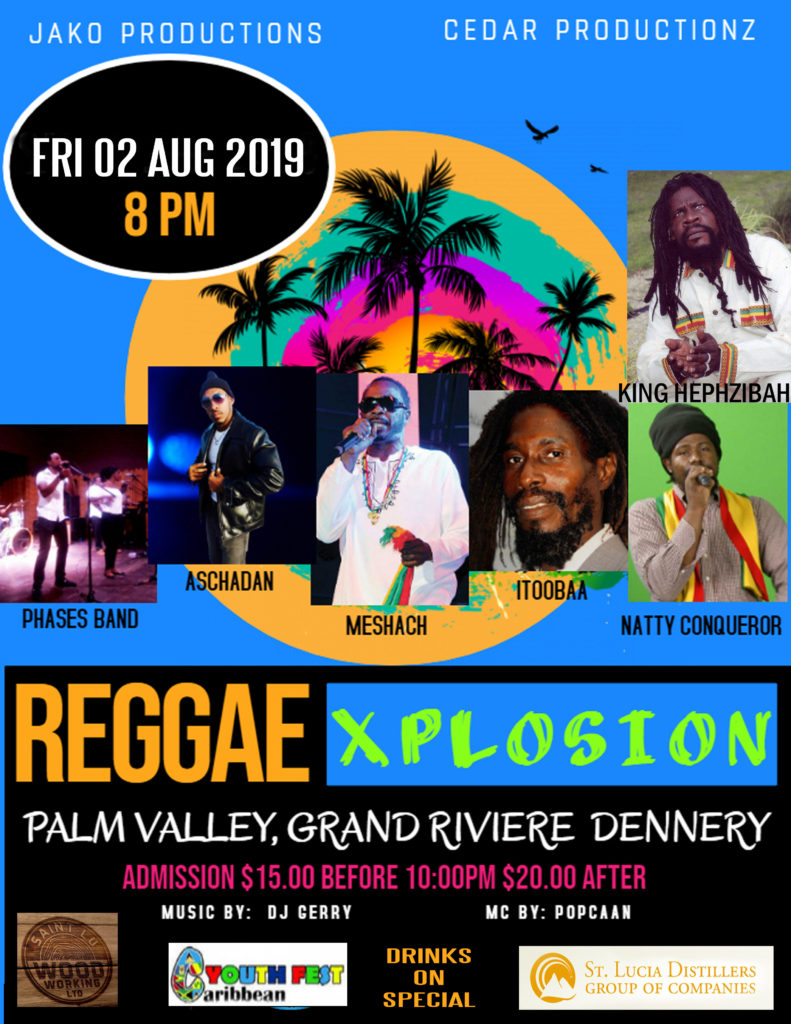
Itoobaa has since part ways with 4thWorld and gone solo and as such is in the process of completing his second album as a solo artist. He will be performing several of the songs on this album at the Reggae Xplosion in Palm Valley on August 2, 2019, Palm Valley Entertainment, Grande Riviere, Denney.
Besides Itoobaa, the show will feature The Phases Bandas they perform many of the reggae songs on their soon-to-be-released album, What People Say. The show will also feature up-and-coming reggae artist, Natty Conqueror, and such iconic reggae and dancehall artists as KingHephzibah, Deighton Charlemagne, Meshach, and Aschadan, all backed by the Phases Band.
An often-asked question is how didItoobaa come by his name? Well, in the late seventies, Merchant of Trinidad had a song Umbaya-Yaho about a chief who had a son called Mutoobaa. Itoobaa was constantly singing the song and the message of the song rang true to the manner in which he played soccer and cricket, so his friends started calling himMutoobaa. After joining the Niyabingi, and in keeping Rastas’ love of I’s(Ital, I-Man), Itoobaa’s friends changed his name from Mutoobaa to Itoobaa, a name that has become synonymous with St. Lucian reggae.
![]()

